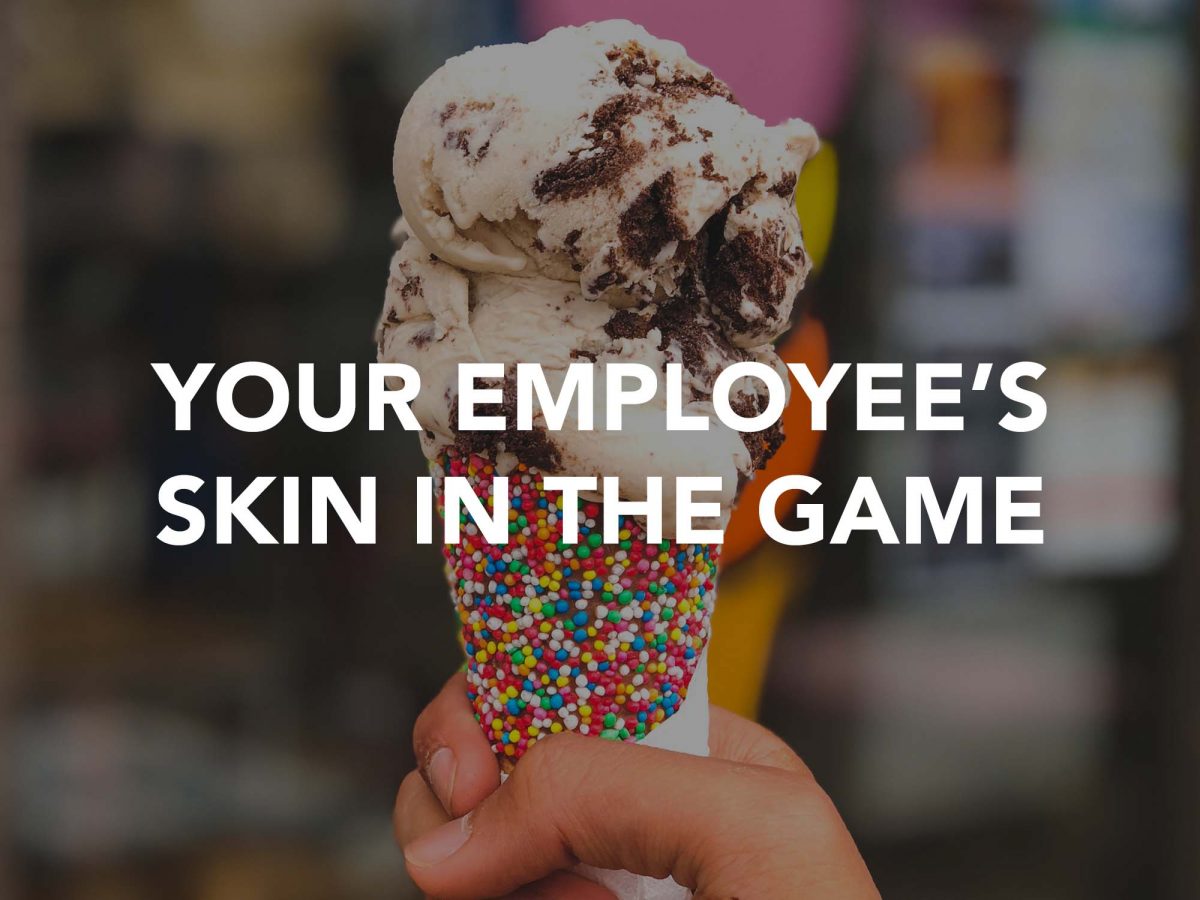It’s a story you might have heard. I want to go deeper than that, see how that translates to the professional world.
I was in a gelato shop the other day. No need to name it. We had our waffles with ice-cream in silence, looking at the street from the warmer side of the window. You know you can feel tension sometimes, right? In the sense that you might not pay attention to the words that are spoken somewhere around you but at least through the tone, you feel there’s something wrong.
A client dropped her macaron. She was asking for a new one — didn’t specifically “blame it” on the salesperson (which I think is good so as to not place blame) by phrasing it somewhere along the lines of:
“The way it was placed on the tray was making it likely to fall”
Not so much language verbose but she said it in a non-personal way.
“Sorry, you have to buy a new one, we can’t help you otherwise.”
So and my party and I ruled out the following: a macaron costs £1.90. Production cost? Say £0.5, though that’s a lot — let’s just say they buy it themselves for that amount.

How much would that person spend with the shop yearly? A waffle is somewhere around £7. Say £50 yearly at least.
For an extra 50p cost, they’ve lost not only her but also her friends (she was with a group of 5 I think). Surely the sale cost included situations like these so that it can be covered. And most of the time, they’re not dropped on the floor.
Yes, we’ve heard this story before — what’s new?
Let’s see what that means in the professional space. First of all, I don’t think anyone is to blame. Not the employee, not the customer, not the employee’s superior. If I’d really have to pick one, it’d be the owner because when you’re CEO, everything is on you.
If anything, it was up to her to transmit that into the company’s culture — especially since more than sure the sale cost covered situations like these.
Second of all, it’s easy for us to judge from the outside. That was an instant decision.
Here’s what I think we can take from this
You’re not the one responsible for the bill. Pay for that inconvenience. Pay it forward, how they say it in common culture. We might get very close to a discussion about religion but if you at least believe in a governing force (not necessarily God but it could be God), then that force will keep the bill for you.
And if you trust it, you won’t mind keeping the tab for that good thing you’ve done some time ago or the bad one that happens to you today. Easy to say, a bit harder in practice. But you can go a long way uninterrupted (and that’s the highlight), should you not stop every now and then to keep the tab.
And, as you might have seen, when you go a long way without interrupting, you can also get far.
Another thing is this:
Skin in the game. Sure, easy for me to say:
“If I’d have been the employee, I’d have given the macaron without a doubt. And if the manager would scold me, I’d offer to pay from my wage. It’s £2 anyways, it’s worth more than the CLV.”
Easy for me to say, I’ve built businesses all my life. So the existential businessperson problem is this (surely you’ve encountered it before):
How do you have people put their skin in the game?
If I’m a surgeon, I have skin in the game. A lawyer in court has it as well. Myself, with my experiences design agency — I have it as well. As a mere employee that doesn’t care, I can say who gives a damn about these £2 or the customer lifetime value.
And as much as I’d want to have an answer to the question, I don’t. The closest I got to was to show passion and that somehow inspired people (sometimes, not always) when I talked about what I believe. It’s a bit of a high cost that I’m ready to pay all the time when this belief is not matching anyone else’s — but this is not meant to be a motivational written piece. You know it, stand for what you believe.
The “don’t keep the tab” and “skin in the game” concepts somehow get together. If both you and I pay it forward, surely soon enough we’ll have enough good around us.
In the professional space
Get on the one on one talk with your user — 5 a day, if it seems too much.
In the same way, get 1 on 1 with your employee.
Get their skin in the game by inspiring.
Don’t keep the tab with your clients. And if you find that hard, it just means you need to charge more to cover for that.
If you’re afraid of being good because of abuse from the other side, ask yourself how many can possibly abuse it — and remember you can say no when it’s too much.
About Ch Daniel
I run chagency, an experiences design agency that specialises on helping tech CEOs reduce user churn. We believe experiences are not only the reason why users choose not to leave but also what generates word of mouth. We’re building a credo around this belief.
If I’ve brought you any kind of value, follow me and get in touch here: LinkedIn | Twitter | Email
I’ve also created an infinitely-valuable app for sneaker/fashion enthusiasts called Legit Check that impacted hundreds of thousands over millions of times – check it out at chdaniel.com/app
Please share this with someone and subscribe to our newsletter!— helps us keep pumping content?




